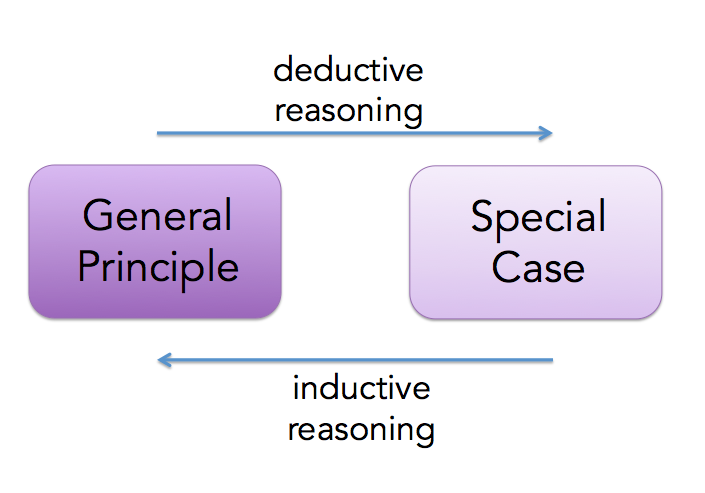Whether you’re a student, teacher, or just someone interested in how arguments work, understanding inductive arguments will give you a better appreciation for how we draw conclusions from evidence.
Simply put, an inductive argument is one that relies on evidence to support a conclusion. Unlike deductive arguments, which proceed from general principles to specific cases and whose conclusions are necessarily true if their premises are true, inductive arguments do not guarantee the truth of their conclusions. This means that even if all the premises of an inductive argument are true, the conclusion might still be false.
So how can we tell whether an inductive argument is valid? The best way is to look at its strength. A strong inductive argument is one where the premises make it highly unlikely that the conclusion would be false. This means that if all the premises are true, then it is very likely that the conclusion is also true. On the other hand, a weak induction argument has premises which don’t make it very likely for the conclusion to be true.
When evaluating an induction argument, it may also be helpful to consider how plausible its premises and conclusions are. Do they seem reasonable? Do they agree with your own beliefs or experiences? Though this doesn’t guarantee validity (just because somethng seems plausible doesn’t mean it’s necessarily true), it can help you form an opinion about whether or not you believe the argument is valid.
In summary, while deductive arguments can be evaluated as valid or invalid based on whether their premises guarantee their conclusions, inductive arguments must instead be evaluated as strong or weak based on how likely their conclusions are given their premises. Keep in mind that even if all of an induction argument’s premises are true, its conclusion may still be false – so use your best judgement when evaluating any induction argument you come across!
Validity of Inductive Arguments
No, inductive arguments cannot be valid or invalid. Validity and invalidity are terms used to describe the strength of deductive arguments, which are types of arguments in which the conclusion is necessarily true given that the premises are true. Inductive arguments, however, do not have this same type of logical certainty; they can only be assessed as strong or weak. In a strong inductive argument, if the premises are true, it would be highly unlikely that the conclusion would be false.

Can Inductive Arguments Be Both Valid and Sound?
Yes, inductive arguments can be valid and sound. An inductive argument is valid if the conclusion logically follows from the premises; that is, if it is impossible to accept the premises without also accepting the conclusion. However, in order for an inductive argument to be considered sound, its premises must also be true. A strong inductive argument has premises which make the conclusion highly likely to be true. In contrast, a weak inductive argument has premises which make the conclusion only slightly more likely to be true than not.
The Invalidity of Inductive Arguments
Inductive arguments are never valid because they do not guarantee the truth of their conclusion. Unlike deductive arguments, which must be valid for the conclusion to be true, inductive arguments use evidence and reasoning to make a case for why something is likely to be true. Inductive arguments rely on the strength of the evidence presented, so even if all the premises are true and support the conclusion, there is still no guarantee that the conclusion is true. Therefore, an inductive argument can never be considered valid.
What Constitutes a Valid Inductive Argument?
A valid inductive argument is one in which the truth of the conclusion is supported by the premises. The premises must be true and logically related to each other, and they must support the truth of the conclusion. In other words, inductive reasoning relies on evidence that points towards a certain conclusion. Therefore, for an argument to be valid, it must start with reliable evidence and provide logical connections between each premise that lead to a viable conclusion. Additionally, for an argument to be considered valid, its conclusion must be supported by more than one premise; this increases the likelihood that the conclusion is true or at least reasonably lkely to be true.
Are Inductive Arguments Always True?
No, an inductive argument is not always true. Inductive arguments are based on premises that are believed to be true, but the conclusion is not guaranteed to be true. Instead, the conclusion is only probable, meaning that it is more likely than not to be true. The probability of the conclusion depends on the strength of the inference from the premises. While some inductive arguments may be highly reliable and consistently produce a correct conclusion, others may lead to false conclusions due to a weak inference from the premises.
The Accuracy of Inductive Reasoning
No, inductive reasoning is not always true. Inductive reasoning starts with specific observations and uses them to form a general conclusion. However, the conclusions reached from inductive reasoning have the potential to be false if any of the observations used as evidence are incorrect. While deductive arguments can be sound if their premises are valid and true, this does not guarantee that conclusions reached from inductive reasoning will also be true.

Are Deductive Arguments Always Valid?
No, deductive arguments are not always valid. A deductive argument is valid only when the premises logically lead to the conclusion, meaning that if the premises are true, then the conclusion must also be true. If an argument fails to meet this criteria, then it is considered invalid. For example, if one were to argue that “all birds have wings” and “all penguins have wings” so “all penguins are birds”, this would be an invalid argument becuse although all penguins have wings and all birds have wings, not all penguins are birds. Therefore, for a deductive argument to be considered valid it must logically lead from its premises to its conclusion.
Validity of an Argument
An argument is valid if its premises logically lead to its conclusion. In other words, if the premises of an argument are true, then it necessarily follows that the conclusion must also be true. If the premises of an argument are not logically connected to its conclusion, then it is invalid. For example, if someone states that “all cats have four legs” and “dogs have four legs,” it does not follow that all cats are dogs; therefore, this argument is invalid.
Valid but Not Sound Arguments
An argument is valid if its conclusion follows logically from its premises, rgardless of whether the premises themselves are true or false. An argument that is valid but not sound would be an argument with a logical structure in which the conclusion follows from the premises, but at least one of the premises used to reach that conclusion is false.
For example, an argument may contain the following premises: “All birds fly. Penguins are birds. Therefore, penguins fly.” This argument is valid because its conclusion (“penguins fly”) logically follows from its two premises (“all birds fly” and “penguins are birds”). However, this argument is not sound because one of its premises (“all birds fly”) is false; while most birds do indeed fly, penguins actually cannot.

Validity and Strength of Inductive Arguments
Inductive arguments are neither valid nor strong by definition. Validity refers to logical arguments, which requires premises that guarantee the truth of the conclusion. An inductive argument, however, is based on the observation of evidence and then an inference is made from that evidence to a conclusion. This means that the conclusion canot be guaranteed to be true; rather, it is more likely than not to be true. As such, its strength depends on how much evidence is presented and how reliable that evidence is. If there is sufficient and reliable evidence for the conclusion then an inductive argument can be strong; otherwise it will be weak.
Validity of Non-Deductive Arguments
Yes, a non-deductive argument can be valid. A valid argument is defined as one where if the premises are true, then the conclusion must be true. In a non-deductive argument, the premises do not guarantee that the conclusion is true; however, it is stll possible for all of the premises to be true and for the conclusion to be true as well. In this case, the argument would still be considered valid. To assess a non-deductive argument, one must consider all of the evidence provided, think critically about whether all of the premises could actually be true at once, and make a judgement about whether or not it is likely that the conclusion follows from what has been presented.
Identifying an Inductive Argument
An inductive argument is a type of reasoning that attempts to draw a conclusion based on evidence or observations in the premises. To identify an inductive argument, look for general conclusions drawn from specific examples, observations, or data. For example, if the conclusion of an argument is “All cats are playful” based on the premise “Some cats are playful”, this is an exmple of an inductive argument. Inductive reasoning is not infallible and relies on the accuracy of the premises; however, it can reveal patterns and trends in data which can help us draw conclusions about larger groups or populations.
Conclusion
In conclusion, inductive arguments provide a useful way of reasoning that can extend beyond the boundaries of valid deductions. Though they are technically invalid, when presented with true premises and sufficient supporting evidence, a strong inductive argument can be considered cogent and render the conclusion likely. It is important to note that the strength of an inductive argument cannot be assessed as valid or invalid but instead must be evaluated as strong or weak. With this in mind, inductive arguments can be used to form logical conclusions which may lead to further discoveries and exploration.
